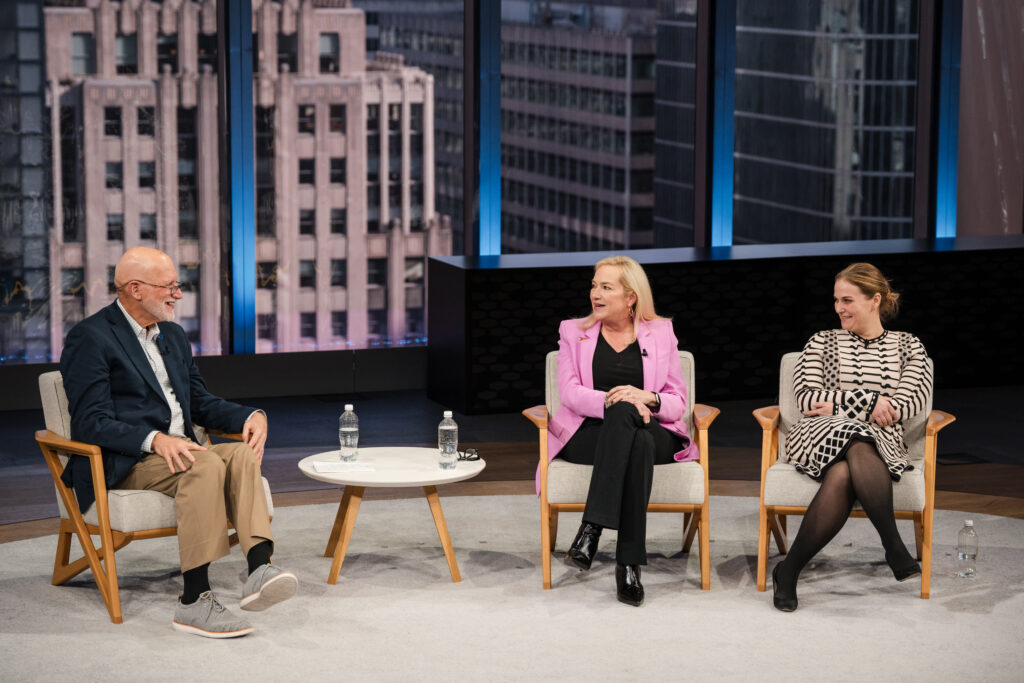Kristin King, Vice President of the George W. Bush Presidential Center, Chief Operating Officer of the George W. Bush Institute, and former Director of the Presidential Leadership Scholars program, recently answered questions about the launch of PLS over a decade ago, her favorite PLS memories, and her hopes for the future of the program.
You’ve been involved with PLS since the very beginning. Can you tell us about your involvement with the program over the years and how it evolved?
Kristin King: When the program was originally conceived, former Bush Center President and CEO Margaret Spellings was the visionary behind it. At the time, I was the Director of Events at the Bush Center. When I had the opportunity to join PLS, it was a big shift into a more programmatic role. It was a little wild at first – we were building the bike while riding it. A class was coming in, and we were making schedules, booking hotels, and figuring things out as we went. After the first module, we’d immediately meet with colleagues at the Clinton Foundation to plan the next one, which was just a month away. Over time, we figured things out, and my roles at the Bush Institute evolved. I became Chief of Staff and later Chief Operating Officer, but I’ve always remained on the PLS steering committee with our Clinton Foundation colleagues. So, I’ve continued to stay involved at a high level, helping guide the direction of the program.
Getting four presidential centers to work together on such an intensive program is a huge accomplishment. How did the program come to be?
Kristin King: Margaret Spellings was the driving force and visionary. When she became President and CEO of the Bush Center in 2013, she immediately saw the opportunity – four presidential centers, three in Texas and one in Little Rock, two Democrats and two Republicans. Her thought was: Why aren’t we working together? She saw the tremendous resources available and believed we could do something special. She met with the Clinton Foundation’s Executive Director Stephanie Streett and then-Chairman Bruce Lindsey, and they were on board quickly. There’s even the story of President Bush calling President Clinton directly to help bring it together. With the support of the LBJ Foundation and George & Barbara Bush Foundation teams as well, it came together more easily than one might think. People had high hopes for it, but I don’t think anyone could have imagined what it would ultimately become. Which is something really exceptional.
What were your initial goals when launching PLS?
Kristin King: From the very beginning, we talked about the program being important, but even more so, we wanted to launch participants into an alumni network. The real goal was to build a network of doers – people who might never have worked together otherwise. PLS could bring together individuals from different regions, ideologies, and sectors who wouldn’t normally cross paths. Building that alumni network was the number one goal, and the program was the vehicle for that. We also wanted to make sure it was different – not just another leadership program, but one that was presidential and rigorous. Over time, we’ve really seen the value of nurturing that alumni network and what it can accomplish.
Did you expect PLS to be as successful as it is today? Did anything turn out differently than you first envisioned?
Kristin King: I assumed it would be successful, especially with President Bush and President Clinton leading it, and with the LBJ and Bush 41 teams helping. But I didn’t fully realize the impact it would have – especially the impact the scholars would have on each other. There’s something about PLS that people quickly form a deep emotional connection to. We often talk about the “secret sauce” – we don’t fully know what the ingredients are, but it’s there. So yes, I thought it would succeed, but I never could have imagined that in ten years it would grow into what it is today.
What’s your favorite PLS memory?
Kristin King: There are so many fun and even wild memories. But one that stands out is when Mark Cuban visited in our inaugural year in 2015. He had a formal program on stage that was open to the media, but he also stopped by to see the Scholars in a more informal setting. He ended up giving them an impromptu master class in business and leadership – just an authentic dialogue with about 60 people. It wasn’t planned, and it was really special.
What are your hopes for the future of PLS?
Kristin King: I hope it continues to grow and expand its reach, while keeping the strong connectivity we have today. I’d love to see Scholars across different classes continuing to lean on one another and collaborate – whether for big projects or small ones. If people continue to call on their fellow scholars, there’s really no limit to what can be accomplished.

